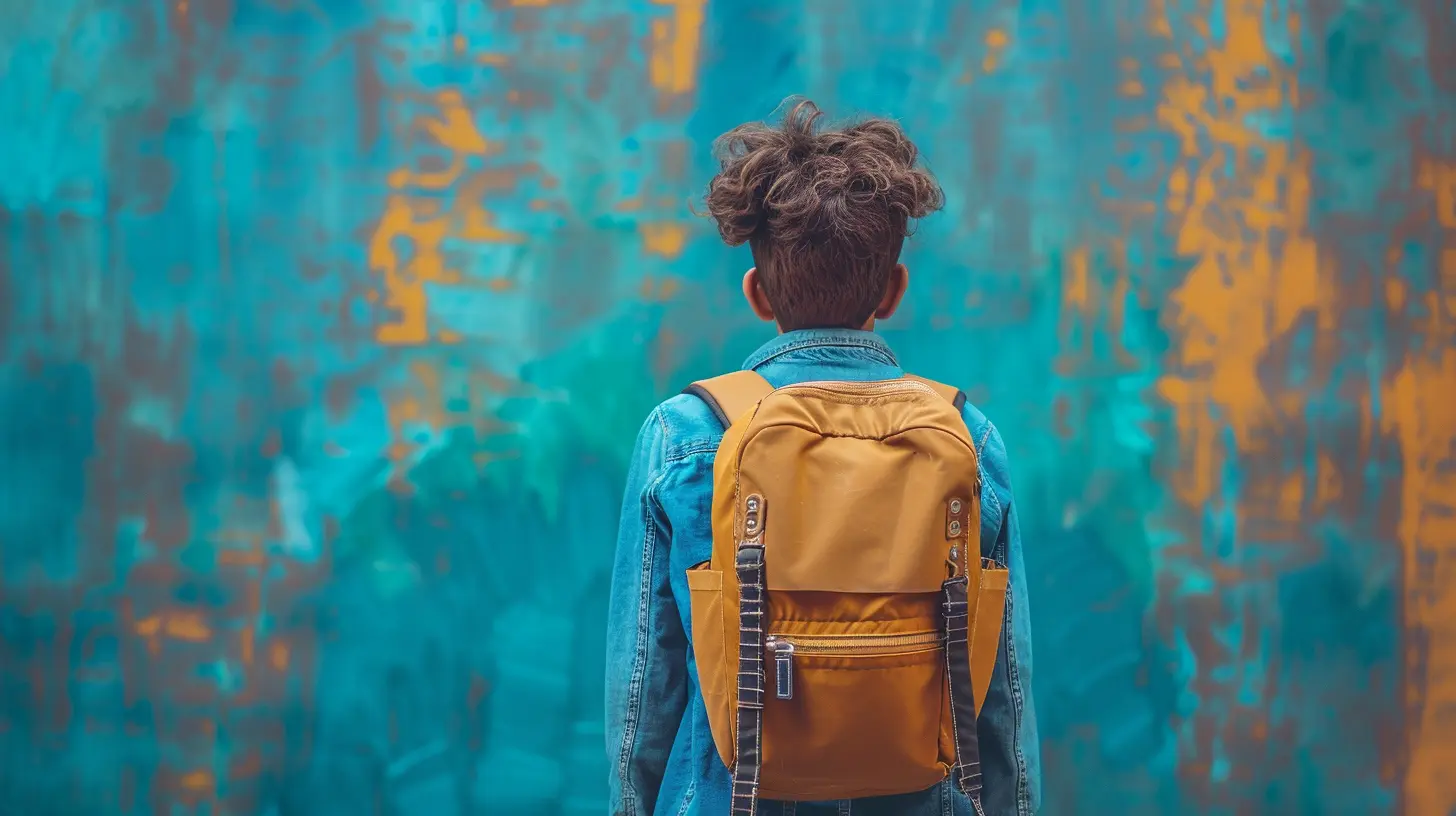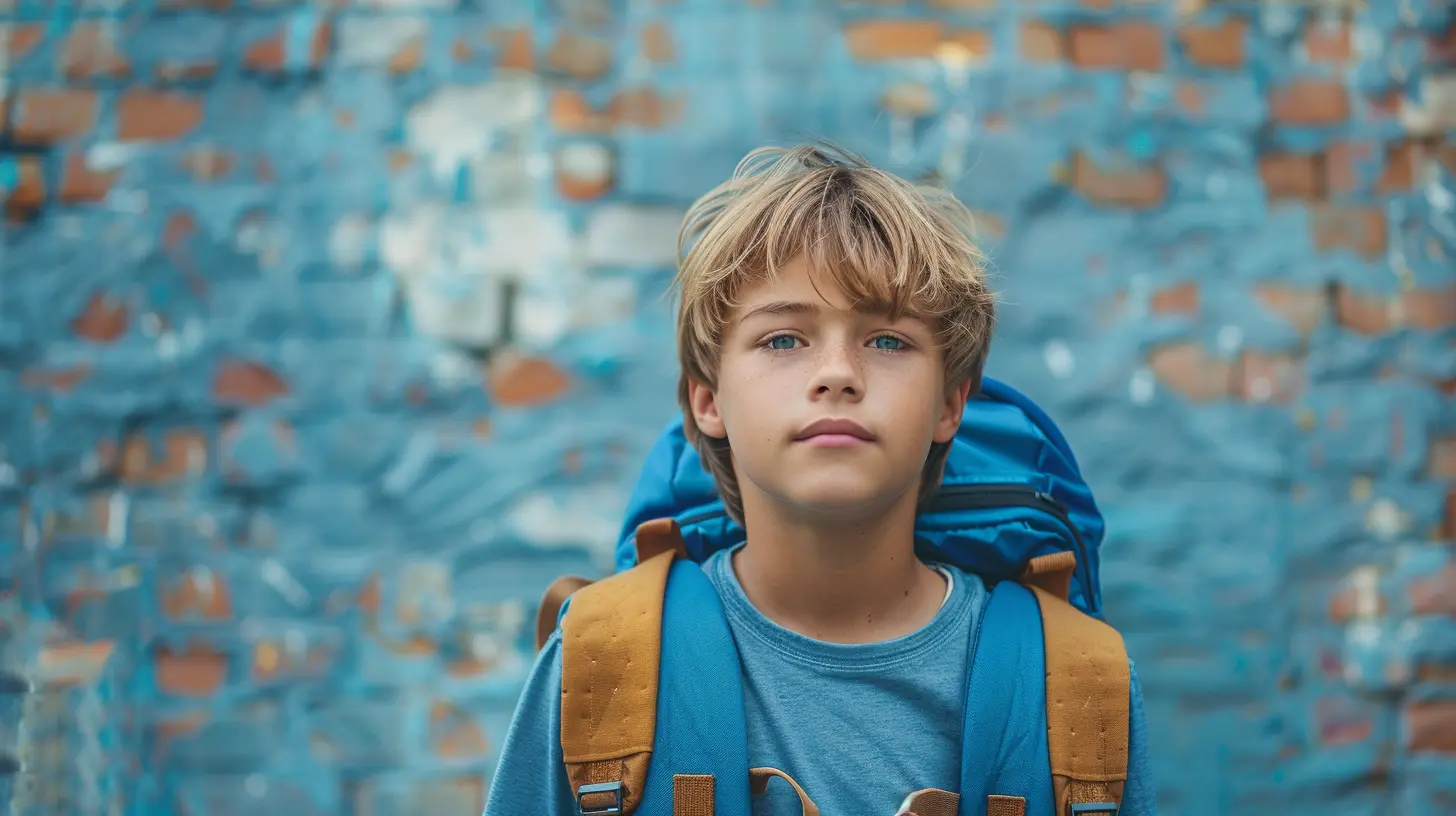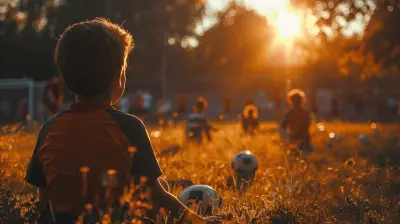Encouraging Responsibility: The Art of Teaching Your Teen to Own Their Choices
6 November 2025
Raising teenagers is a wild ride, isn’t it? One minute they’re asking for help with homework, and the next they’re slamming doors because you dared to ask about their plans for the weekend. But somewhere in this whirlwind of hormones, mood swings, and messy bedrooms, lies one of the most important lessons we can teach them—responsibility.
More specifically, how to take ownership of their choices.
Let’s face it: Our kids are growing up in a fast-paced world full of distractions and pressure. Teaching them to be responsible, to make good decisions, and—here’s the kicker—to stand by those decisions (especially the not-so-great ones), is no small feat. But it’s doable. And the best part? You don’t need to be a parenting expert to pull it off.
Let’s dive into the art (because yes, it’s an art) of helping your teen own their choices—without pulling your hair out in the process.
Why Responsibility Matters More Than Ever
Before we get into the how, let’s talk about the why.Responsibility isn’t just about chores, grades, or curfew. It’s about preparing your teen for real life. You know, adulting—the kind that involves job interviews, taxes, relationships, and resisting the urge to eat cake for breakfast (though sometimes that’s totally fine).
When teens learn to take responsibility early on, they develop:
- Better decision-making skills
- Confidence in their abilities
- A stronger moral compass
- Emotional maturity
- Better relationships with others
And perhaps the most underrated perk? They start to see you as less of a “controlling parent” and more of a partner in their journey to adulthood. Now that’s a win.
Start with Trust—Even If It’s Scary
Let’s get real: Handing over the reins to a teenager isn’t exactly easy. It feels a little like giving a monkey a matchbox and expecting them not to start a fire.But here’s the deal—we can’t teach responsibility without offering opportunities to be responsible. That starts with trust.
Yes, they’ll mess up. Yes, sometimes they’ll make choices that make your stomach flip. But those very moments are where growth happens.
Try this:
- Give them space to make age-appropriate decisions.
- Allow “safe” failures. Missing a deadline? A lesson in time management. Skipping a practice? A talk about commitment.
- Ask for their input: “What do you think is the right move here?”
Teenagers are way more likely to own their choices when they feel trusted, not micromanaged.
Use Natural Consequences as Teaching Tools
No, I’m not saying let your teen walk straight into disaster. But there’s something powerful about allowing natural consequences to play out.Let’s say your teen forgets their lunch. You could drive it to school (again), or you could let them go without it this time. Spoiler alert: They won’t starve. But they will remember the discomfort and be way more likely to pack it the next time. That experience sticks.
The idea here is to let the world teach them—because when mom or dad is always swooping in, they learn that someone else will clean things up. But if they forget and have to deal with the fallout? Lesson learned.
A few guidelines:
- Make sure the consequences are safe and appropriate.
- Don’t pile on guilt afterward. Keep your cool.
- Have a debrief later. “So, what will you do differently next time?”
These moments build internal accountability. And that’s gold.
Encourage Decision-Making (Even If It’s Flawed)
It’s tempting to jump in and “fix” your teen’s decision before it even happens. But what if we resisted that urge?Let them choose their electives, their job (or not to get one yet), and how they spend their weekend (within reason). Then stand back and watch.
Even if the choice isn’t perfect, it’s theirs. That ownership builds confidence. And when they start seeing the ripple effects of their decisions—good and bad—they start connecting the dots.
Here’s a tip: Ask open-ended questions instead of giving advice. Not “You should study more” but “How do you think not studying will affect your exam score?”
Get them to think, reflect, and analyze. That’s what builds responsible thinkers.
Model Responsibility Yourself (Yes, That Means Admitting You Messed Up)
You can’t expect your teen to own their stuff if you don’t own yours. Teens have built-in hypocrisy detectors, and they’ll call you out faster than you can say, “Because I said so.”So, be real with them. If you snap at them after a long workday, apologize. Show them what it looks like to take responsibility with grace.
This does two powerful things:
1. Makes you more relatable. You're human, too.
2. Sends a clear message: It’s okay to mess up, as long as you acknowledge it and try to do better.
Responsibility isn’t about perfection. It’s about resilience.
Set Clear Boundaries (And Follow Through)
Here’s a truth bomb: Teens actually crave structure. They may grunt and roll their eyes, but boundaries make them feel safe. They want to test the fences—you know, the way a dog might check just how far the yard goes—but knowing the lines gives them a sense of security.Be clear about expectations and consequences. For example:
- “If you miss curfew, we’ll talk about adjusting your privileges.”
- “If you don’t do your part around the house, you lose access to the car.”
And here’s the hard part—follow through.
If you say there are consequences, there have to be consequences. Empty threats make you look like a pushover and teach your teen that rules don’t really mean much. But consistency? That builds trust and accountability.
Let Them Feel the Weight (But Not the Crushing Pressure)
There’s a big difference between responsibility and pressure. Too much pressure can cause teens to shut down, rebel, or burn out. But the right amount of weight in their backpack helps them grow strong without breaking.Think of it this way: You wouldn’t hand your kid a 100-pound dumbbell at the gym and say “Figure it out, champ.” You’d start small, guide them, and slowly increase the challenge.
Same thing goes here.
Gradually increase their responsibilities:
- Start with managing their calendar
- Add financial decisions like budgeting allowance
- Let them negotiate their own schedules (within limits)
- Introduce part-time work or volunteer opportunities
The goal is to build their “responsibility muscle” over time, not crush them under a mountain of expectations.
Celebrate Responsibility When It Shows Up
Catch them doing something right. Seriously. We’re quick to point out the missteps, but how often do we say, “Hey, I noticed you handled that on your own. Well done”?Teens might act like they don’t care what you think, but your validation still matters—probably more than they’ll ever admit.
Celebrate their wins:
- Took ownership of a school mistake? Give ’em a shoutout.
- Handled a conflict with a friend maturely? Praise their approach.
- Chose to stay in and study instead of going out? High five.
Positive reinforcement builds momentum. And nothing motivates a teen quite like hearing, “I’m proud of how you handled that.”
Give Grace—Growth Takes Time
Some days, it’ll feel like your teen is nailing it. Other days, you’ll wonder if they’ve learned anything at all. That’s okay. This isn’t a straight-line process.Growth is messy. Ownership is uncomfortable. And sometimes, your teen will regress before they progress.
That’s par for the course.
Stay in it with them. Keep the conversations going. Focus less on perfection and more on progress. Give grace—for them and yourself. You’re growing right alongside them.
And remember: No one becomes responsible overnight. But with patience, consistency, and connection, they’ll get there. And when they do, you’ll know it was all worth it.
Final Thoughts
Teaching your teen to own their choices isn’t about control—it’s about empowerment. It’s about preparing them to handle life with confidence, maturity, and grit.You won’t always get it right. Neither will they. But every conversation, every consequence, every moment of reflection adds to their toolbox. And before long, you’ll see the transformation—a teen who doesn’t just blame the world when things go wrong, but who says, “Yeah, that one’s on me. Now what do I do next?”
That’s the magic moment. That’s the win.
So hang in there, parent. Keep showing up. Keep talking, listening, guiding—and letting go, bit by bit.
Responsibility isn’t something you hand over.
It’s something they earn.
all images in this post were generated using AI tools
Category:
Teenager IndependenceAuthor:

Steven McLain
Discussion
rate this article
1 comments
Astrid McKenzie
Teaching teens to own their choices builds confidence and accountability, fostering essential life skills for their independence and future success.
November 6, 2025 at 3:53 AM

Steven McLain
Absolutely! Encouraging teens to take ownership of their choices not only boosts their confidence but also equips them with vital skills for lifelong success.


